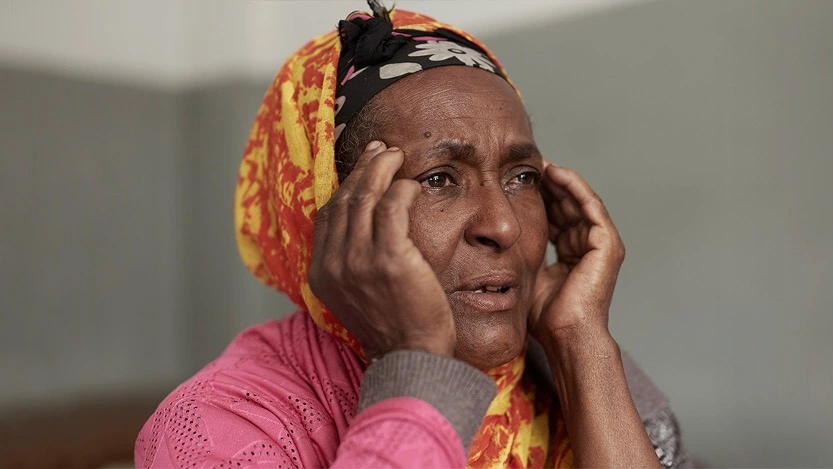Around the world, one billion people live with preventable visual impairment due to a lack of access to basic eye care services. Of these, an estimated 90% live in low- and middle-income countries (LMICs), and South Asia and sub-Saharan Africa (SSA) experience the highest rates of vision loss.1 Vision impairment is responsible for a global economic productivity loss of USD 410 billion annually.2

According to the World Health Organization, there are vast inequalities related to vision impairment and the burden of eye conditions. They tend to be greater in LMICs and underserved populations, such as women, migrants, indigenous peoples, persons with certain kinds of disability, and in rural communities.
Recognizing eye health as a key development issue, the United Nations General Assembly adopted in July 2021 its first-ever resolution on eye health to address preventable vision loss, setting ‘vision for everyone’ targets in the Sustainable Development Goals. The global commitment is to reach at least 1.1 billion people with vision impairment who currently lack access to eye services by 2030.
However, achieving this goal requires addressing critical gaps such as the scarcity of eye care specialists in SSA, where there are only 2.7 ophthalmologists per million inhabitants in the region3. Against this background, Novartis launched a program to tackle avoidable blindness in underserved communities in sub-Saharan Africa and Southeast Asia. The program is building an ecosystem of partners across the public and private sectors to reimagine eye health at a global and local level and address inequities in access to eye care. The focus of these partnerships is three-fold:
- Strengthen healthcare systems
- Expand access to high-quality, affordable medicines
- Improve patient outcomes
Vision impairment has a huge impact on quality of life and can jeopardize educational attainment and employment. Beyond patients, it also places a heavy burden on caregivers and society. Together with our partners, we are excited to be part of the solution to eliminate avoidable blindness in sub-Saharan Africa.
Racey Muchilwa, Head of sub-Saharan Africa, Novartis.
The collaboration supports advocacy, education and access, with the aim to create integrated solutions that improve access to high-quality, affordable eyecare services in underserved populations. Through the Avoidable Blindness Program, Novartis is working closely with four key partners:
- The International Agency for the Prevention of blindness is the overarching alliance for the global eye care sector with 150 members worldwide drawn from NGOs and civil society, corporate organizations, professional bodies and research and eye care institutions. The three-year partnership will address inequities in access to eye care and promote country-level advocacy for the integration of eye care into the primary healthcare system – by supporting policy dialogue, planning and implementation of eye health services in SSA.
- Vula Mobile is a medical referral app and online platform, which connects primary healthcare workers with specialists to enable faster assessment of eye conditions. The partnership will empower primary care facilities to provide adequate eye care services, improve the quality of referrals to specialist centers and assist health administrators in making data-driven decisions.
- The Fred Hollows Foundation is an international development organization dedicated to expanding access to eye healthcare. The partnership will focus on preventing avoidable blindness in Kenya through strengthening the capacity of the health system to provide high-quality cataract, glaucoma and retinal eye health services across the patient pathway.
- SightLife is a global health organization dedicated to eliminating corneal blindness by strengthening health systems through advocacy, training, and outreach in Asia, sub-Saharan Africa and the United States. The partnership supports the integration of eye health into primary care in rural Ethiopia: with a focus on training primary health providers in the provision of quality eye care and advocating for universal access to eye care in the country.
Through the Avoidable Blindness Program, we are engaging with policy makers and key stakeholders in healthcare to address public health challenges and enable better outcomes for patients. Together with our partners, we are committed to strengthening eye health for underserved populations to help eliminate avoidable vision loss and the huge burden it places on individuals and society.